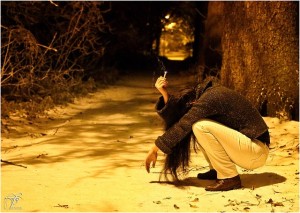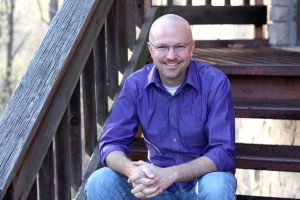
Psychosis is an unsettling and often frightening experience. Defined as a disruption of thoughts and perceptions, which make it challenging to recognize what is real and what is not, these experiences often include seeing, hearing, and believing things that are not real. [1] Despite common perceptions, psychosis is not an illness, but instead, symptoms that can result from psychosis and addiction along with several other different causes.
Common symptoms of psychosis are:
- Changes in grades or work performance
- Paranoia or suspiciousness of others
- Isolation and changing relational patterns
- Trouble thinking clearly or concentrating
- A decline in personal hygiene
- Strong, inappropriate emotional reactions
- Having no emotional reaction at all
- Persistent, irrational thoughts
- Hearing, seeing, tasting, or believing things that others don’t
Hallucinations and Delusions are two types of experiences that can be present during an experience of psychosis. A hallucination is defined as hearing, seeing, or feelings that are not there, such as hearing voices or seeing people or objects that have no basis in reality.
A delusion is a strong belief that has little to no basis in reality. Delusions can include believing one has superpowers, are specially chosen by God for a particular mission, or believing that the government or aliens are controlling one’s thoughts. When these occur, it is referred to as a psychotic episode or psychotic break.
Psychosis can result from many different causes that are not related to a mental illness such as lack of sleep, prescription drugs, brain injury, stress, medical conditions, trauma, or the misuse of drugs and alcohol. It can also be a symptom of bipolar disorder or schizophrenia. [2] The National Alliance on Mental Health (NAMI) reports that in the United States each year, “approximately 100,000 young people experience psychosis.” [1]
Schizophrenia is a brain disorder that affects thinking, feeling, and behavior. For an individual with schizophrenia, it can be challenging to organize their thoughts, stay motivated, or distinguish reality. These symptoms usually begin in their late teens or early 20’s. Contrary to common perception, those with schizophrenia do not have multiple personalities, and most are not a danger to others. [3]
Bipolar Disorder (formerly known as manic-depression) is a mental disorder characterized by extreme shifts in mood and energy levels ranging from feeling energized and euphoric to severely depressed and withdrawn. Sometimes an individual with bipolar disorder will experience delusions or hallucinations which match their mood. [4]
Research has shown that many individuals experience psychotic symptoms for more than a year before seeking treatment or professional help, which is unfortunate, as early intervention and treatment are related to better recovery.
Relationship Between Psychosis and Addiction
The relationship between psychosis and addiction is a complex one. Research shows that there is a strong link between drug and alcohol use and psychotic experiences.
Both psychosis and addiction can result in psychotic symptoms, and evidence suggests that those who first have a drug-induced psychotic episode are at a higher risk of developing future psychosis. [5]
 One study in Denmark found that 32% of individuals with any substance-induced psychosis later developed either schizophrenia or bipolar disorder. [6] What remains unclear is whether the substance abuse may have caused the psychosis independent of other factors or whether drug use triggered psychosis in those already predisposed to psychotic disorders. [7] It may also be that many individuals use drugs and alcohol to cope with hallucinations and delusions.
One study in Denmark found that 32% of individuals with any substance-induced psychosis later developed either schizophrenia or bipolar disorder. [6] What remains unclear is whether the substance abuse may have caused the psychosis independent of other factors or whether drug use triggered psychosis in those already predisposed to psychotic disorders. [7] It may also be that many individuals use drugs and alcohol to cope with hallucinations and delusions.
Additionally, when drugs and alcohol are intertwined with psychotic episodes, it is difficult to diagnose the source of the problem. In general, if the psychotic symptoms discontinue once the drugs and alcohol are out of the system, then is it considered a drug-induced psychosis.
If symptoms persist or return in the absence of drugs, then the cause of the psychosis is likely related to other factors. Regardless of the cause of psychosis, there is a consensus among medical professionals that further drug and alcohol abuse will negatively impact psychosis and addiction.
Psychosis is a severe mental health issue and should be addressed by a medical professional. According to NAMI, there has been “significant success using a treatment approach called Coordinated Specialty Care (CSC). CSC uses a team of health professionals and specialists who work with a person to create a personal treatment plan based on life goals while involving family members as much as possible.” [1]
This approach includes the following components:
- Case management
- Family support and education
- Psychotherapy
- Medication management
- Supported education and employment
- Peer support
For individuals or family members of someone experiencing psychosis, having a plan can be helpful in times of emergency. The University of North Carolina Health Care website [8] suggests having an emergency plan which includes:
- Emergency phone numbers
- List of medications the person is taking and their doses
- Name of the person’s doctor and caseworker, therapist or counselor
- Insurance or related information
- Plan for notifying pertinent health care professionals
- List of family members or other caregivers who should be notified
To learn more about psychosis, download this resource from the National Institute of Mental Health.
REFERENCES
[1] National Institute of Mental Health. (n.d.). Early Psychosis. Retrieved February 10, 2020, from https://www.nami.org/earlypsychosis
[2] National Institute of Mental Health. (n.d.). Understanding Psychosis. Retrieved February 10, 2020, from https://www.nimh.nih.gov/health/publications/understanding-psychosis/index.shtml
[3] Brain & Behavior Research Foundation. (2019, August 23). Frequently Asked Questions about Schizophrenia. Retrieved February 10, 2020, from https://www.bbrfoundation.org/faq/frequently-asked-questions-about-schizophrenia
[4] National Institute of Mental Health. (n.d.). Bipolar Disorder. Retrieved February 10, 2020, from https://www.nimh.nih.gov/health/topics/bipolar-disorder/index.shtml
[5] Bujara, S. (2019, January 28). Substance Abuse and Primary Psychosis: A Closer Look. Retrieved February 10, 2020, from https://www.psychiatryadvisor.com/home/schizophrenia-advisor/substance-abuse-and-primary-psychosis-a-closer-look/
[6] Starzer MSK, Nordentoft M, Hjorthøj C: Rates and predictors of conversion to schizophrenia or bipolar disorder following substance-induced psychosis. Am J Psychiatry 2018; 175:343–350
[7] Barkus, E. (2007, January 1). The Link Between Psychotic Disorders and Substance Use. Retrieved February 10, 2020, from https://www.psychiatrictimes.com/schizophrenia/link-between-psychotic-disorders-and-substance-use
[8] University of North Carolina Health Care. (2018, March 1). What to Do if a Family Member or Friend Has Psychotic Symptoms. Retrieved February 10, 2020, from https://healthtalk.unchealthcare.org/what-to-do-if-a-family-member-or-friend-has-psychotic-symptoms/
About the Author:
 Travis Stewart, LPC has been mentoring others since 1992 and became a Licensed Professional Counselor in 2005. His counseling approach is relational and creative, helping people understand their story while also building hope for the future. Travis has experience with a wide variety of issues which might lead people to seek out professional counseling help. This includes a special interest in helping those with compulsive and addictive behaviors such as internet and screen addiction, eating disorders, anxiety, and perfectionism. Specifically, he has worked with eating disorders since 2003 and has learned from many of the field’s leading experts. He has worked with hundreds of individuals facing life-threatening eating disorders in all levels of treatment. Travis' website is wtravisstewart.com
Travis Stewart, LPC has been mentoring others since 1992 and became a Licensed Professional Counselor in 2005. His counseling approach is relational and creative, helping people understand their story while also building hope for the future. Travis has experience with a wide variety of issues which might lead people to seek out professional counseling help. This includes a special interest in helping those with compulsive and addictive behaviors such as internet and screen addiction, eating disorders, anxiety, and perfectionism. Specifically, he has worked with eating disorders since 2003 and has learned from many of the field’s leading experts. He has worked with hundreds of individuals facing life-threatening eating disorders in all levels of treatment. Travis' website is wtravisstewart.com
The opinions and views of our guest contributors are shared to provide a broad perspective of addictions. These are not necessarily the views of Addiction Hope, but an effort to offer a discussion of various issues by different concerned individuals.
We at Addiction Hope understand that addictions result from multiple physical, emotional, environmental and genetic factors. If you or a loved one are suffering from an addiction, please know that there is hope for you, and seek immediate professional help.
Reviewed and Approved by Jacquelyn Ekern, MS, LPC on February 25, 2020
Published February 25, 2020, on AddictionHope.com
